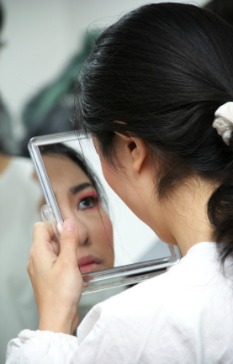Self-assessment: Is Yours “Enough”?
Your self-assessment influences what kind of life you lead
Assessments are personal opinions or judgments you make about the way things are or the way they ought to be.
For example, in your opinion, a windy day is a “good” day if you plan to go sailing, but it is a “bad” day if you plan to go golfing.
Assessments and “Enough”
Your self-assessment is the opinion or judgment you make about yourself and whether you are what you think you ought to be.
 |
You
might judge yourself as being “smart enough" or “experienced enough” if the
graduate school you apply to accepts you, or if your supervisor promotes
you. You might even consider yourself "exceptional" or "superior." But you might also consider yourself not “good enough” or "inadequate" or even "inferior" if your application is rejected or if your supervisor promotes a coworker instead of you. |
Your belief about yourself does more than determine how you interpret events. It also generates your emotions and how you feel about yourself, dictates what actions you take or don’t take, and determines what kind of results you produce in all areas of your life.
That is why getting it right is crucial to your happiness and success.
Assessments and Standards
The fundamental question about your self-assessment is whether it is grounded. Grounded assessments are based upon standards and experiences which you and others can refer to if you need to explain why you hold a particular opinion about yourself.
Unlike assertions, which are either true or false and can be verified by a third party, assessments are neither.
“She is a Rhodes scholar” is an assertion because it is a fact that can be verified by checking the list of Rhodes Scholar winners to see if it is true.
“She is very smart “is an assessment because the standard by which ‘smart people’ are measured is not stated. Is she smart because her parents or her friends say she is smart? Is she smart because she solved the Rubik’s cube? We don’t know.
Until the standard which measures a person’s intelligence is identified and accepted by an individual or organization qualified to make such an evaluation, any statement about someone’s level of intelligence is simply an ungrounded personal opinion.
“She is smart because she won a Rhodes scholarship” is a grounded assessment that points to the standard upon which you have based your opinion; namely, a Rhodes scholarship.
It shows that your opinion isn’t simply a figment of your imagination based upon a hunch or a feeling or an isolated experience. There is some objective basis for it. Rhodes scholarships are awarded to smart candidates.
Ungrounded Assessments
Ungrounded self-assessments, especially negative ones, limit what you are capable of achieving.
If you believe you are dull, unattractive, unhealthy, unpopular, inept or ordinary, how you feel about yourself and what actions you take are completely different from how you feel and act if you believe you are clever, attractive, healthy, well-liked, competent, or exceptional.
More importantly, the kind of life you create for yourself is also completely different.
This is what often happens when we unwittingly accept the assessments others have of us, especially if they are in positions of authority, like parents, teachers, or a manager or supervisor.
Instead of questioning the standards by which they judge us and asking for concrete evidence of our shortcomings, we too easily accept their opinions as if they are unassailable truths. And if we then live by their opinions, our lives go in some directions and not in other direction.
Assessments and Assertions
Assertions and assessments are actions that use the power of language to make things happen. Your ability to keep them distinct from each other is critical to your ability to produce satisfactory results and to build and maintain strong relationships.
To get more satisfying results in your life, challenge the beliefs you hold about yourself.
Or, consider hiring a life coach to help you discover new ways to challenge the opinions you have about yourself.
Home › Communication › Self-awareness



